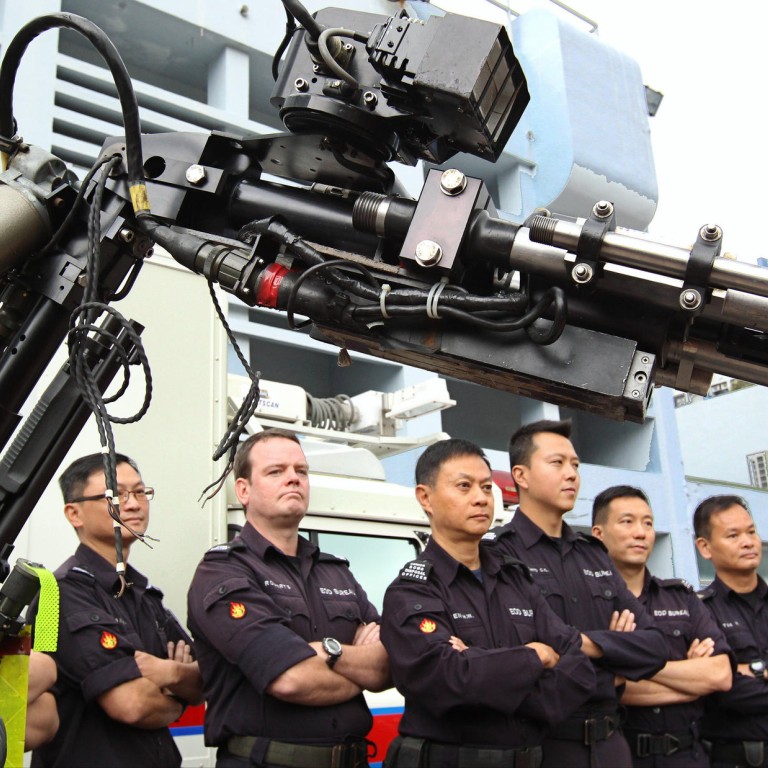
Becoming a Hong Kong bomb-disposal officer takes a special personality
Handling an unexploded bomb doesn't just take skill, it's also a question of personality
"Bomb disposal officers are basically strange people," says Adams Roberts, a member of the team that defused a 2,000-pound US wartime bomb in Happy Valley last month.

The discovery of the massive bomb forced the evacuation of thousands of residents and hotel guests, and focused attention on the city's small team of bomb-disposal experts.
And while few women have joined the police's Explosive Ordnance Disposal Bureau, Roberts says they are well suited to the task.
"The female brain is quite good for bomb disposal, mentally, because you know they tell you that men tend to think in one direction, at one thing, while women tend to be able hold more than one concept in their head at the same time."
Of the bureau's 41 members - six full-time bomb-disposal officers, five assistants and 30 reservists trained to defuse homemade bombs - only four are women, all of them in the reserves.
About 30 police officers apply to join each year, but eight out of 10 applicants are turned down.
"It's difficult because it's a very unusual job anyway, so although people volunteer, they may not be suitable," Roberts says.
Officers undergo four years of training, even learning how to build a bomb themselves. They spend weeks or months in Britain or the United States, where the skills they learn include evidence collection and handling court cases.
"For IEDD [Improvised Explosive Device Disposal], remember, the UK had the problem in Northern Ireland for many decades," Roberts says.
Full-time officers are also responsible for post-blast investigation, underwater operations and the handling of chemical, biological, radiological and nuclear incidents, says senior superintendent Jimmy Yuen Hon-wing, who heads the bureau.
It can be a grisly task. Yuen recalls spending a week recovering evidence from a car filled with the smell of the corpse of the driver, who had died in an explosion.
